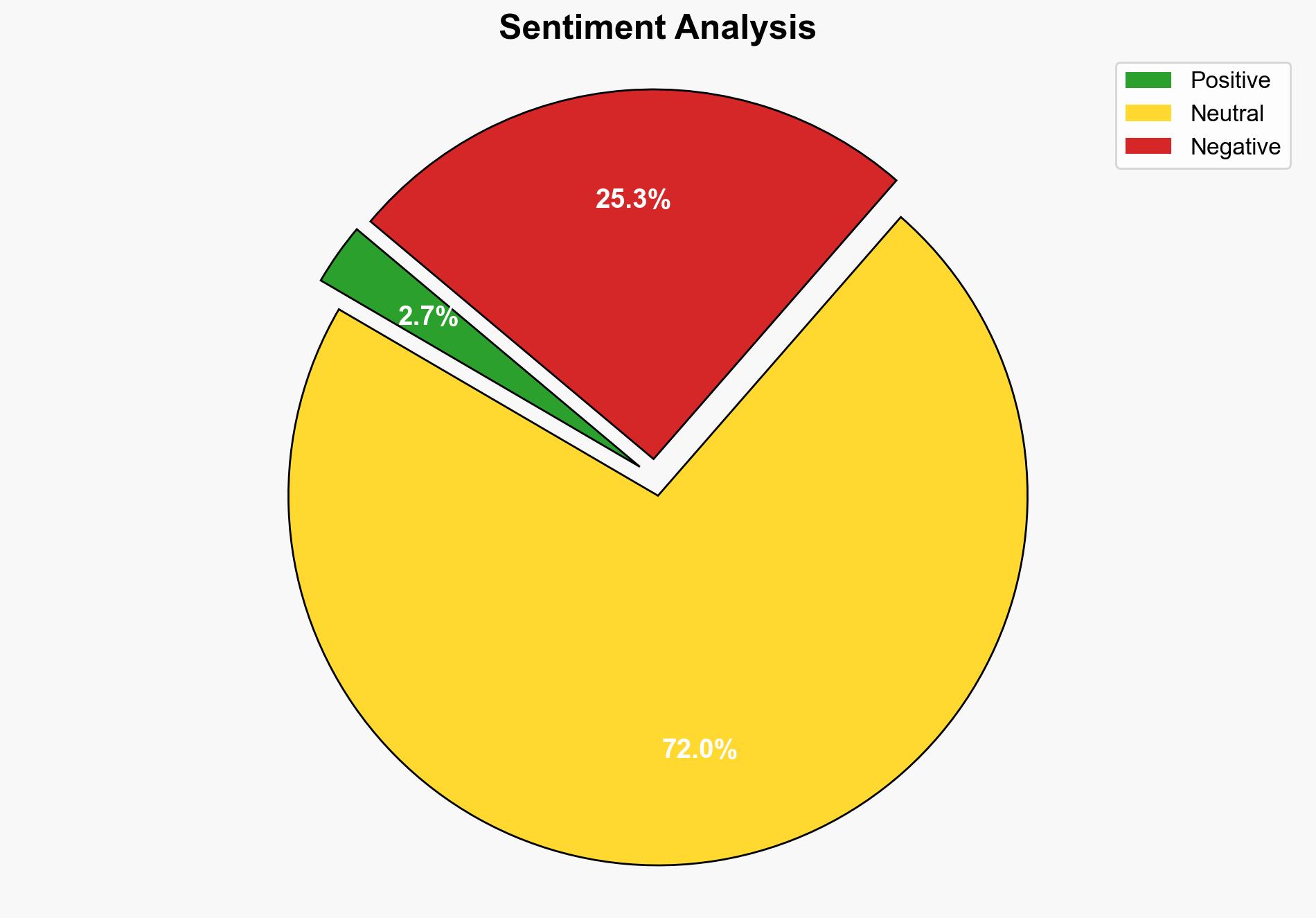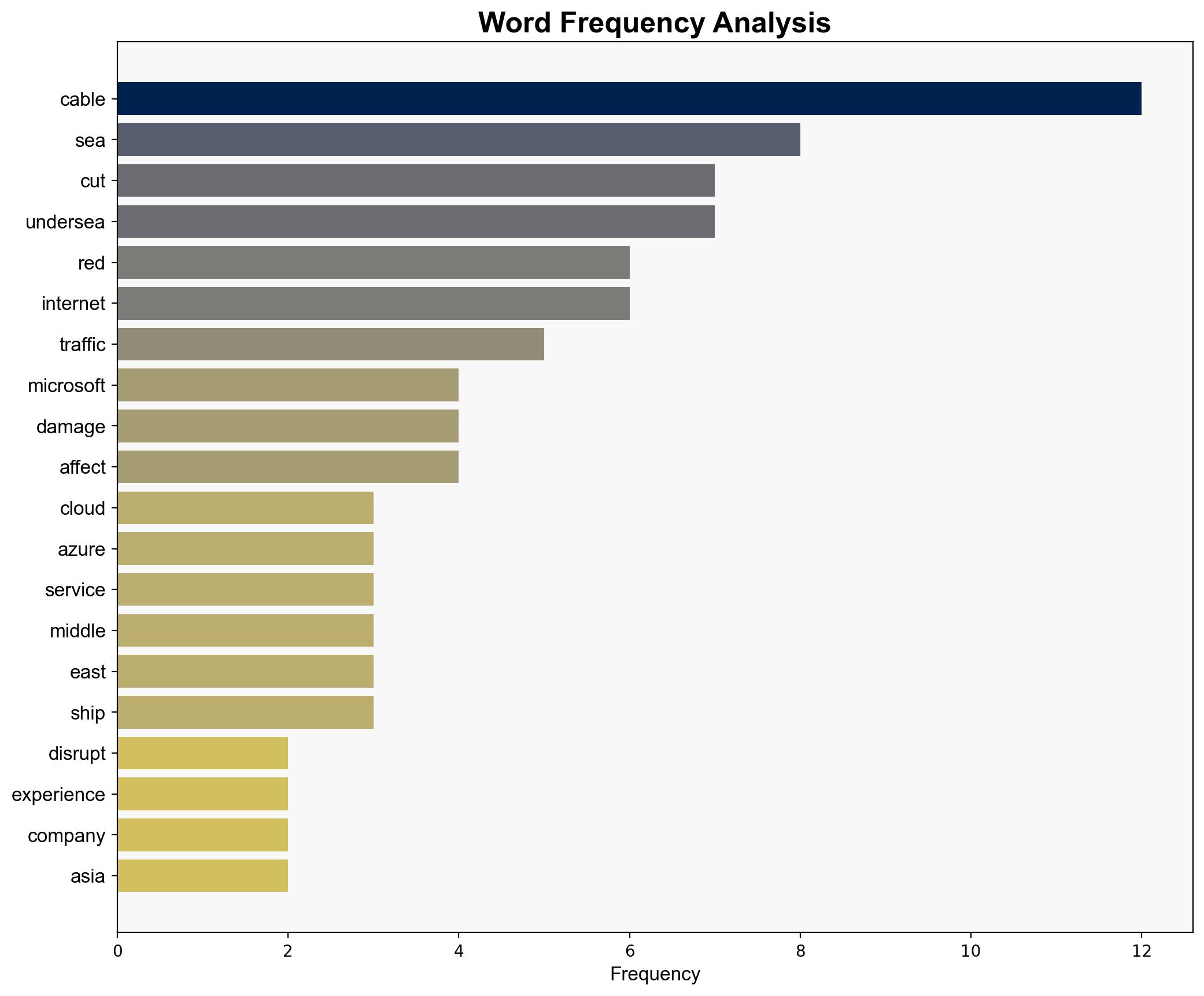Microsoft cloud services disrupted by Red Sea cable cuts – BBC News
Published on: 2025-09-07
Intelligence Report: Microsoft cloud services disrupted by Red Sea cable cuts – BBC News
1. BLUF (Bottom Line Up Front)
The most supported hypothesis is that the cable cut was an accidental incident caused by maritime activities, with a moderate confidence level. This conclusion is based on historical patterns of similar incidents and the lack of direct evidence pointing to deliberate sabotage. Recommended actions include enhancing monitoring of critical infrastructure and improving redundancy in data routing to mitigate future disruptions.
2. Competing Hypotheses
1. **Accidental Damage Hypothesis**: The cable cut was caused by maritime activities such as an anchor drop from a ship. This is supported by historical precedents where undersea cables have been accidentally damaged in busy shipping lanes.
2. **Deliberate Sabotage Hypothesis**: The cable cut was an intentional act of sabotage, potentially linked to geopolitical tensions in the region. This hypothesis considers past incidents of cable sabotage and the strategic importance of disrupting communication infrastructure.
3. Key Assumptions and Red Flags
– **Accidental Damage Hypothesis**: Assumes that maritime activities are the most likely cause of undersea cable damage. A red flag is the lack of immediate evidence confirming accidental damage.
– **Deliberate Sabotage Hypothesis**: Assumes that regional actors have the capability and intent to disrupt communication infrastructure. A potential cognitive bias is the tendency to overestimate the likelihood of sabotage due to recent geopolitical tensions.
– Inconsistent data: The report lacks direct evidence of either hypothesis, creating uncertainty.
4. Implications and Strategic Risks
– **Economic Impact**: Disruptions in cloud services can lead to significant economic losses for businesses reliant on Microsoft Azure.
– **Cybersecurity Risks**: Increased latency and rerouting of internet traffic may expose vulnerabilities in network security.
– **Geopolitical Tensions**: If sabotage is confirmed, it could escalate tensions in the Middle East, affecting international relations and security.
– **Psychological Impact**: Repeated incidents may erode public confidence in the security of global communication infrastructure.
5. Recommendations and Outlook
- Enhance surveillance and monitoring of critical undersea infrastructure using advanced technologies like satellite imagery and autonomous underwater vehicles.
- Develop contingency plans for rapid rerouting of data traffic to minimize service disruptions.
- Engage in diplomatic efforts to address potential geopolitical tensions and promote regional cooperation in securing communication infrastructure.
- Scenario Projections:
- Best Case: Improved infrastructure security and regional cooperation prevent future incidents.
- Worst Case: Escalation of geopolitical tensions leads to further sabotage and economic disruption.
- Most Likely: Continued incidents of accidental damage with periodic disruptions, prompting gradual improvements in infrastructure resilience.
6. Key Individuals and Entities
– Microsoft
– NetBlocks organization
– Pakistan Telecommunication Company
– Swedish authorities (related to Baltic Sea incidents)
7. Thematic Tags
national security threats, cybersecurity, counter-terrorism, regional focus




